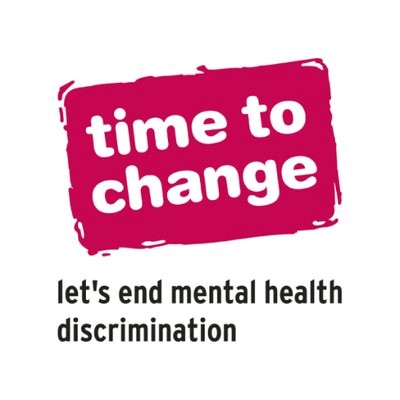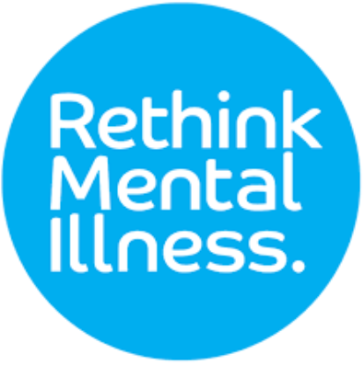As many as one in four people will experience some form of mental illness at some point in their lives. Mental health problems range from reactions to normal life events, such as bereavement, relationship breakdowns and depression, to more complex conditions such as schizophrenia.
If you are experiencing an issue with your mental health it is important to know that you are not alone and that there is plenty of support available to help improve your mental well-being.
The first place to get help is your GP. They are best placed to offer you initial advice on how to deal with your symptoms and talk to you about available treatments and support services in your area.
If you are already a service user and you have a mental health crisis during normal office hours (Monday to Friday, 9am to 5pm), your first point of contact should be the person that you usually see (your care coordinator, or named lead professional).
If you, or a friend or relative are experiencing mental health problems for the first time and need emergency treatment or advice during office hours, then you should contact your general practitioner (GP). They will be able to refer you to the most appropriate mental health service in your area.
In an emergency, if your GP surgery is closed, you should call your local Single Point of Access (SPA):
- If you live in Brent, Harrow, Hillingdon, Kensington & Chelsea or Westminster call 0800 023 4650
- If you live in Ealing, Hammersmith and Fulham or Hounslow call 0800 328 444.
Trained mental health advisors and clinicians are available to provide help and advice in a crisis 24 hours a day, 7 days a week, 365 days a year.
Additionally, if you are experiencing something that makes you feel unsafe, distressed, or worried about your mental health, you can now contact your local crisis service in NW London by calling NHS 111 and selecting the mental health option.
What happens when I call?
The phone will be answered by a trained mental health professional who will be able to listen to your concerns and help you get the support you need. With your permission, they can also access your electronic patient records to better meet your needs and to avoid you repeatedly having to tell us your situation. They can offer advice over the phone, put you in contact with crisis services or refer you to an appropriate community service.
Who can call?
You can call for yourself, or someone else. NHS 111 is for all ages, including children and young people and those with neurodevelopmental needs.
If you’re deaf or have hearing loss, please use the following link to be connected to local crisis services – NHS 111 – SignVideo.
If you aren't able to make the call yourself, then anyone can call on your behalf - for example a friend, carer, loved one or even your GP. You can also access NHS 111 online via 111.nhs.uk.
Please note you will not be able to make medication requests or order repeat prescriptions through this service – for support with this please contact your GP.
This quiz uses questions that GPs often use to assess whether someone is anxious or depressed. It also includes links to useful information and advice on mental wellbeing.
There are 18 questions altogether. With each one, you’ll need to think about how you’ve been feeling over the past 2 weeks.
You can monitor any ups and downs of your mood by revisiting this self-assessment quiz at any time.
Right now, it has never been more important for each of us to think and talk more about mental health and wellbeing, and to seek support when needed.
There is help and support available for whatever you are going through:
- We offer wellbeing and psychological support, if you are feeling low, anxious or depressed from our talking therapies services. You can refer yourself or speak to your GP or another healthcare professional for a referral. For more information visit www.nhstalk2us.org
- Across London, there is also a range of practical advice and support available from Every Mind Matters, Good Thinking, and Thrive LDN.
- If you feel more comfortable talking to someone you don’t know, you can use one of the following helplines:
- Samaritans are here when life is difficult. They won’t judge you or tell you what to do, they’re here to listen so you don’t have to face it alone. Call the free, 24-hour listening service on 116 123 or email jo@samaritans.org.
- Shout is the UK's first 24/7 text messaging service for anyone in crisis. Text Shout at any time to 85258 to start a conversation with a trained volunteer.
People with mental health issues may also have physical health issues that can reduce their quality of life and also lead to not having as long a life as everybody else.
This was highlighted in a recent report by the mental health charity, Rethink https://www.rethink.org/media/2630/20_years_too_soon_final.pdf
Everyone with serious mental health issues is entitled to a free physical health check, which comprises six tests (blood pressure, weight, smoking, alcohol, blood glucose for potential diabetes and cholesterol test).
However, in NW London boroughs, we are not managing to reach everyone who we need to.
We have worked with people with lived experience of mental health issues to co-produce this video sharing their experience of taking up their entitlement to a health check with the aim of raising awareness of the offer and reducing any anxieties people might have about going for a check.
NHS Talking Therapies (previously called Improving Access to Psychological Therapies, IAPT) are confidential treatments for adults, delivered by fully trained NHS clinicians. They can help with anxiety, as well as other common mental health problems like stress and depression.
Talking therapies are free to access and support may be offered in person, by video, on the phone or online. Which therapy you are offered will depend on the kind of help you need; this could be guided self-help, cognitive behavioural therapy, counselling and more.
How can I access NHS Talking Therapies?
To access talking therapies you can talk to your GP or you can refer yourself as long as you are registered with a GP. To refer yourself, contact your local talking therapies service. You will be contacted by the service within a few weeks for more details, and will be recommended a therapy that is right for you.
For residents of:
Ealing, Hammersmith and Fulham and Hounslow - https://www.westlondon.nhs.uk/our-services/adult/iapt
Brent, Harrow, Hillingdon, Kensington and Chelsea and Westminster - https://talkingtherapies.cnwl.nhs.uk/
Is the treatment confidential?
Talking therapies services normally let your GP know that you are getting support, unless you ask them not to. Your talking therapy team will explain if any information will be shared confidentially with your GP and why this is important.
How old do I need to be to access talking therapies?
Talking therapies in north west London are available to all adults aged 18+. However, in Kensington and Chelsea and Westminster the age you can access the service from age 16.
What if I work full-time?
The majority of appointments are between 9am – 5pm, but some services do offer a few appointments outside these hours and will do what they can to accommodate your schedule.
What if English isn’t my first language?
Talking therapies can be delivered in your chosen language through multi-lingual therapists or confidential translators. Talking therapies are also available in British Sign Language (BSL) through SignHealth Psychological Therapy Service.
For more information about the Talking Therapies service, visit https://www.nhs.uk/mental-health/talking-therapies-medicine-treatments/talking-therapies-and-counselling/nhs-talking-therapies
In NW London we want to ensure the best mental health care for all our residents when they need it. We are planning what that looks like for the next 5 years and what improvements need to be made and we would like your help to shape that.
The first area we are looking at is adult mental health services. We would like to hear from you to understand:
- What services are working well?
- What treatments and/or services patients, residents and staff feel they need that are not readily available?
- What progress has been made to close known inequalities in access to adult mental health services?
- What are the service and treatment priorities in each of the eight NW London boroughs?
You can get involved by attending our focus groups. There are also other ways to take part. Find out more.
To find out more about mental health and for a range of useful tools to help with your mental wellbeing, visit the NHS.UK website.
There are also a number of charities that provide support and advice to people with mental health illnesses. The links below take you to their websites:





